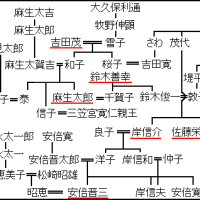The “Farm to Fork” Green Agenda: How the EU and the Davos WEF Cabal Plan to Control Agriculture
Whenever we hear the word “sustainable” we would be well-advised to take a critical look behind the nice sounding words.
「持続可能」という言葉を聞く時は、常にその耳あたりの良い響きの言葉の裏側に何があるかを批判的に考えた方が得策だろう。
This is a clever way of demonizing farmers and our food production as CO2 violators.
このような狡い言い回しを使うことで、農民たちを悪者にし、食料生産が二酸化炭素排出の責任を負っていると思わせようとしているのだ。
How do the unelected bureaucrats in Brussels plan to “redesign our food systems” to eliminate one-third of global greenhouse gas emissions by 2050?
By forcing farmers to go bankrupt by demanding new costly inputs to production and radical new genetic manipulated patented plants with unproven safety. Above all they plan to lift the current de facto ban on gene-edited plant cultivation. For those who do not know, it is the same unproven risky technology used in the COVID-19 vaccines of the Pfizer and Moderna mRNA gene-edited vaccines using CRISPR.
選挙で選ばれたわけではないEUの幹部たちの計画によれば、どのように「食料体制の再構築」を成し遂げ、2050年までに世界の温室ガス排出を3分の1までに抑えるつもりなのだろうか?
その答えは、農民たちを廃業させることだ。その手口は、生産活動にお金がかかる新たな装置を要求したり、安全性が証明されていない新たな特許つきの遺伝子組み換え作物の栽培を求めるというやり方だ。そして連中の最大の目論見は、今は事実上禁じられているゲノム編集作物の栽培を認めさせることだ。ご存知のない方々のために申し添えると、これはファイザー社や、モデルナ社が、安全性が証明されていないCRISPR(訳注:Clustered Regularly Interspaced Short Palindromic Repeatsの略で、近年原核生物でファージやプラスミドに対する獲得免疫機構として機能していることが判明したDNA領域のこと)を使った技術でCOVIDワクチンを作っているのと同じことだ。
To raise the share of pesticide-free organic farming to 25% of the EU total at the same time reducing chemical pesticide use by 30% by 2030 sounds great to the uninformed. Like the claims of Monsanto and the GMO industry that their GMO crops reduce need for pesticides, it is a lie. The EU is using this as bait to introduce a radical change in strict current EU rules for allowing approval of gene-edited plants and animals into agriculture. In their May 2020 document on Farm to Fork Green Deal, the EU states that the Commission is “carrying out a study which will look at the potential of new genomic techniques to improve sustainability along the food supply chain.” This means gene-editing, CRISPR/Cas9 genetic modification.
2030年までに、無農薬のオーガニック農法の割合をEU全体の25%にまで増やすと同時に、化学肥料の使用を3割減らそうという目標は、内実をよく知らされていない人々には素晴らしいことに思えるだろう。モンサントや遺伝子組み換え業者が「遺伝子組み換え作物は必要な肥料を減らすことができる」と主張していたのと同様に、この話は嘘だ。EUはこの話を餌に現行のEUの規則を根本的に変えようとしているのだ。今の規則では、農業におけるゲノム編集を行った植物や動物の承認を得るのは困難だ。2020年5月の「農場から食卓へグリーンディール戦略」の文書でEUが述べたところによると、欧州委員会は、「新しいゲノム編集技術の可能性を見据えた研究を実行中であり、食料供給網に伴う持続可能性の改善をはかっているところだ」とのことだ。つまりは、ゲノム編集や、 CRISPR/Cas9(訳注:遺伝子改変操作の一種)遺伝子組み換えの研究を行っているということだ。
The key to the Davos and EU Farm to Fork Agenda is a radical reduction in pesticides to be replaced by gene-edited crops allegedly able to replace pesticides.
ダボス会議とEUが掲げる「農場から食卓へ」計画の本当の狙いは、肥料を大幅に減らすことだと見せかけて、実はゲノム編集作物の導入にある。
” New Genomic Techniques is the euphemism for gene-edited crops.
新しいゲノム編集技術とは、ゲノム編集作物を婉曲的に言っているだけの言葉だ。
implying it will come from abolishing restrictions on gene-editing.
肥料を大幅に削減するという明るい見通しの裏には、ゲノム編集の制限を取り除こうという意図があるということだ。
With no restrictions, gene-editing companies like Bayer-Monsanto will be free to introduce experimental and unproven genetically altered plants and animals into our diet with no labelling.
Such a gene-edit-free regime already exists in the USA
何の制限もなければ、バイエル・モンサント社のような多くのゲノム編集を扱う会社は、試験段階にあって、安全性が確認されていない遺伝子書き換え作物や動物を、何の表示もなしで、私たちの食料品として自由に流通させるだろう。
このような自由なゲノム編集体制は、米国では既に存在する。
Gene-edited US projects on fish and animals include such dubious ones as cows that only have male calves, using CRISPR; Pigs that don’t need castration; hornless dairy cows and growth-enhanced catfish using CRISPR to develop catfish with more muscle cells. It makes the mouth water…
例えばCRISPR技術を使ったゲノム編集により生み出されたオスの子牛しか産まない雌牛や、去勢の必要がない豚や、角のない乳牛や、CRISPR技術を使ったゲノム編集により生み出された成長力が強化されたナマズなどた。そのナマズは筋肉細胞が多くなるようゲノム編集されている。聞いているだけでよだれが出そうだ・・・・(もちろんジョークだ)
The major lobbying push to remove EU regulations on gene-edited crops or animals is coming from Bayer-Monsanto and the other GMO agribusiness giants including Syngenta, BASF, and DowDupont’s Corteva.
ゲノム編集作物や動物に関するEUの規制を排除しようと躍起になっているロビィイストたちの出現元の多くは、バイエル・モンサント社などの遺伝子組み換え農産業界の巨大企業だ 。具体的には、スイスのシンジェンタ社、ドイツのBASF社、ダウ・デュボン社から分離独立した米国のコルテバ社だ。
What he omitted was that deregulating gene-edited crops will allow Bayer-Monsanto and other major GMO companies to charge farmers for their patented “sustainable” seeds.
バイエル・モンサント社会長コンダンが敢えて言わなかった事実は、ゲノム編集作物の規制をなくせば、バイエル・モンサント社のような大手遺伝子書き換え企業にとっては、農民たちに特許付きの「持続可能な」種子を売りつける機会が生まれる、という事実だ。
The technology is not at all precise or controlled and often has unpredicted outcomes such as unintended genetic alteration, even the inadvertent addition of foreign DNA from other species, or even entire foreign genes, into the genome of gene-edited organisms.
この技術はまったく正確なものでもないし、統制もとれていない。しかも予想もできないような生産物を産むこともよくある。例えば、意図しなかった遺伝子変異が起こったり、ゲノム編集が加えられる器官のゲノムに、他の種由来のDNAや、ゲノム全体を、うっかりと組み込んでしまったりすることさえある。
Dr. Allison K Wilson of The Bioscience Resource Project, states, “plant gene editing methods are also prone to introducing UTs (Unintended Traits or genetic damage)…new evidence from both animals and plants indicates that gene editing itself can result in unintended mutations at or near the target site. These include the insertion of vector, bacterial, and other superfluous DNA, and the unintended introduction of large DNA deletions and rearrangements.”
These are not minor flaws that can be ignored. Wilson concludes, “plant gene editing outcomes are imprecise and unpredictable, and that, depending on the combination of techniques used, gene editing can be highly mutagenic. While in theory it might someday be possible to create a GM crop that meets the broad requirements of sustainable agriculture, in practice this seems highly unlikely to ever happen.”
According to an analysis of the EU Farm to Fork strategy by Global Ag Media, “the effect of these strategies will be an unprecedented reduction of EU production capacity and of its farmers’ income. All sectors show declines in production of 5% to 15%, with the livestock sectors being the most heavily impacted… Meanwhile, whatever the scenario, production prices show a net increase of around 10% with a negative impact for most farmers’ incomes. ” The EU farmers’ union, Copa-Cogeca warns the policy will result in an unprecedented reduction in agriculture capacity. But that’s the real intent of “sustainable agriculture.”
農業科学について考える機関であるバイオ・サイエンス・リソース・プロジェクトのアリソン・K・ウイルソン(Allison K Wilson)博士はこう語っている。「ゲノム編集を使った植物は、UTs(意図していなかった効果や、遺伝的な損失)を生み出す傾向もあります。ゲノム編集が加えられた植物や動物の検査結果からは、標的とされた箇所や、その近くの箇所において、ゲノム編集により意図していなかった変異を産んでいることもわかっています。具体的には、ベクター遺伝子や、バクテリアなどの不必要なDNAが入り込んでしまって、意図していなかった規模でDNAが消滅してしまったり、DNAの再構築が起こってしまったりするのです。」
これらの現象は無視できるような小さな被害ではない。ウイルソン博士の結論はこうだ。「ゲノム編集を行った植物にどのような影響が出るかは、正確には掴めておらず、予想もできないものなのです。さらには、現在使用されている技術に依存すれば、ゲノム編集は突然変異を誘発する可能性が高いといえます。理論上は、いつかは持続可能な農業という目標に即した遺伝子組み換え作物を作り出すことはありえるかもしれませんが、実際のところは、そんなことができるようになるとは非常に考えにくいことなのです。」
EUの「農場から食卓へ」政策について、農業に関する記事に詳しいニュースサイト「Global Ag Media」はこう分析している。「これらの政策がもたらす効果により、EUの農業生産量と、農家の収入は予想できないほど減少することになるでしょう。どの分野においても生産量は5~10%減少しています。とくにその影響が大きいのは畜産分野です。対策は打たれているのでしょうが、生産価格は約10%増加していますが、それは農家の収入が減っているという負の部分から来るものです」。EUの農民組合であるコパ・コゲカ(Copa-Cogeca)の警告によれば、この政策の結果、農業生産量は予想できないほどに減少する、とのことだ。しかしその状況こそが、「持続可能な農業」を求める本当の目的なのだ。
https://www.globalresearch.ca/farm-fork-how-eu-davos-cabal-plan-control-agriculture/5757350
日本語訳サイト
http://tmmethod.blog.fc2.com/blog-entry-760.html
























